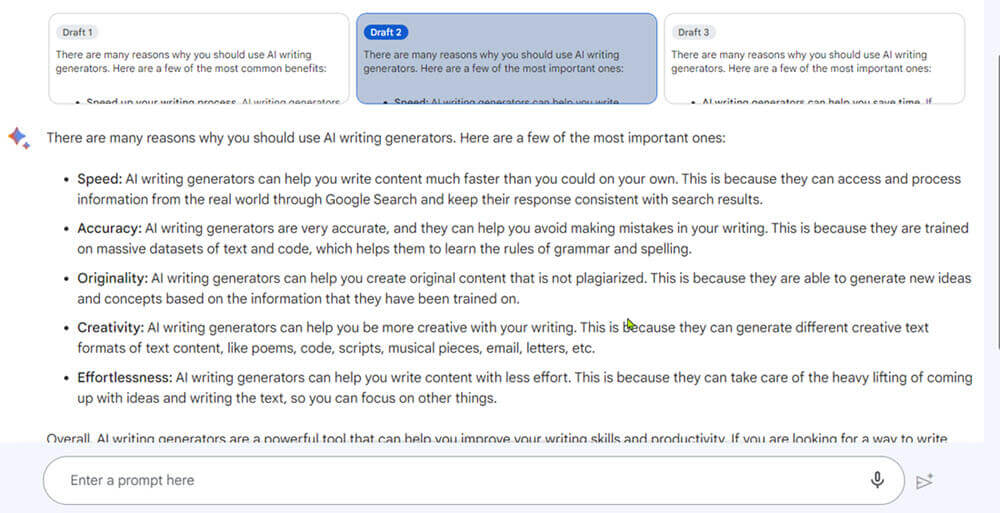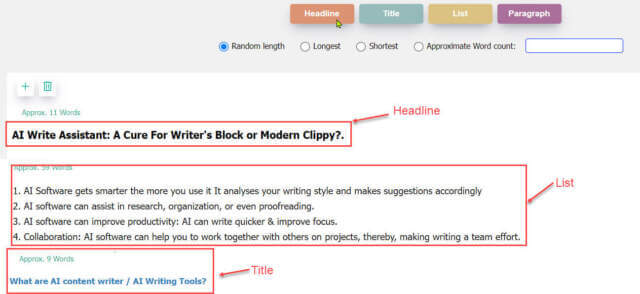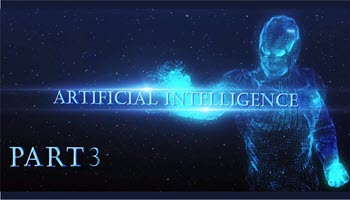Using AI Writing Tools Part 3
Parts 1 and 2 of this series had to do with generating free completely new images using requests by the user to produce images from stunning to amusing. In Part 3, I will be covering the growth of AI-Powered Writing.
AI Writing, What Is It?
There are several types of AI writing assistants and you are probably using one or two right now. Programs like Microsoft Editor and Grammarly are two of them. They are more of an assistant than a text-generating program.
AI writing assistants can correct spelling, grammar, punctuation, content, and readability. Giving you feedback allows you to generate better end results.
AI Writing Generators
Like the image generators discussed in my previous articles, AI Writing Generators can create something just by imputing a prompt. Besides Bing’s ChatGPT, there is Google Bard, and GitHub Copilot which does not restrict itself to AI writing but will also write code.
A useful free version FreeQuillbot will, with very little prompting, will write you a Headline, Title, List, or Paragraph. In addition, you can request a Random length, longest, shortest, or even give it an approximate word count request. I would have a hard time counting the number of times I had nothing but blank come up when trying to come up with a title for an article. Some results are shown below:

Then, using the same question used in the image above Why should I use AI writing generators I instructed it that I wanted a paragraph with an approximate word count of 75 words and it quickly generated the following:
“AI writing tools like ChatGPT are lately a big topic of conversation, and their future looks promising. AI can help more effectively automate the writing and publication of content. You can also use Content to measure the impact of AI-written content and make decisions on future content creation. With accurate, sophisticated content produced in bulk and much quicker than manually produced it’s not surprising to see AI-written tools rise in popularity.”
Is This Cheating?
I find this to be an impressive feat and one of the first questions you have to ask is: Is this cheating? I personally think so or at least it has the potential to be. Particularly if you use the generated response word for word and claim it as your own.
What Does AI Think?
I asked those questions to both Quillbot and Google’s Bard and as expected they not only had different views, they had different results each time I asked.
Quillbot thought that teachers would develop an instinct for recognizing “this kind of unethical writing” and then promptly stated that “we know about copyrights and intellectual property (IP) and writers are supposed to maintain various rights, but they do not have an all-inclusive, ironclad semblance of legal right. Exclusions and exceptions exist. Wow! That is a tough argument to argue.
Google Bard on the other hand had a lot more to say. To be exact 306 words, which I won’t bother to include word for word in this article but in its reply it included tips for students who consider using AI. An impressive response overall but one paragraph that stood out for me was the following:
“Ultimately, whether or not using AI writing is cheating depends on how the tool is used. If a student uses an AI writing tool to generate their own original work, then it is not cheating. However, if a student uses an AI writing tool to generate someone else’s work and then passes it off as their own, then it is cheating.”
How anyone would even go about understanding which was which I’m not sure.
Summary
No doubt we have only touched the tip of this iceberg and while I know that AI tools exist that can scan and determine if an essay or story is AI generated, I don’t know their effectiveness. They go off the assumption that if the next word in any sentence is the most logical word to use it is AI generated because humans would not always use the best choice word after word. I find it hard to express my amazement with this software. I, like many others, have been using very sophisticated software for many years. AutoCAD, Photoshop, Adobe Premier, Excel, and a host of other types of software. However, the one thing they all had in common was that “YOU” needed the basic skills and these programs were aids. When I bought my first copy of AutoCAD for $700 if I did not already understand the underlying components of drafting, the program itself would just be useless code on my computer. Photoshop made me a better graphic artist but it did not make me one.
To further highlight the power of AI-assisted programs, I thought I would give you an example. On a whim, I asked Google Bard to compose a song about my 58 years of marriage and it did. It composed the 1st, 2nd, and 3rd verses, separated by the chorus, bridge, and finally the outro. Now I can’t hold a tune or play a note of music and had no idea how to sing the song it produced. So I went to a few AI music-generating sites including MuseNet and Melobytes to compose the music for the song. There are even paid sites that produce Royalty-Free, AI-Generated Tracks.
- How To Use AI – Part 1
- How To Use AI – Part 2
- How To Use AI – Part 3 ⬅ You are here
- How To Use AI – Part 4 – Pending

Great article Jim. I’ve toyed with ChatGPT’s editing capabilities and they are mind-boggling, especially considering that the extent of the editing is commensurate with the underlying skill of the original author. However, while the resulting document is eloquent and flowing, the voice of the author is lost. Especially for memoir, one could question whether the result is an authentic representation of the author. In general, I foresee a time when all writing may sound the same. How boring!
At least today, and with respect specifically to writing, there’s no getting around the benefits of mastering the craft, relying on your biological brain and moving your own fingers, word-for-word.
Thanks for the kind words Grannygeek. I just saw in the news today that an author wrote over 100 books in a year using AI and is making a lot of money doing it. He said he did it as a test but if he can actually sell books made from AI it makes you wonder.